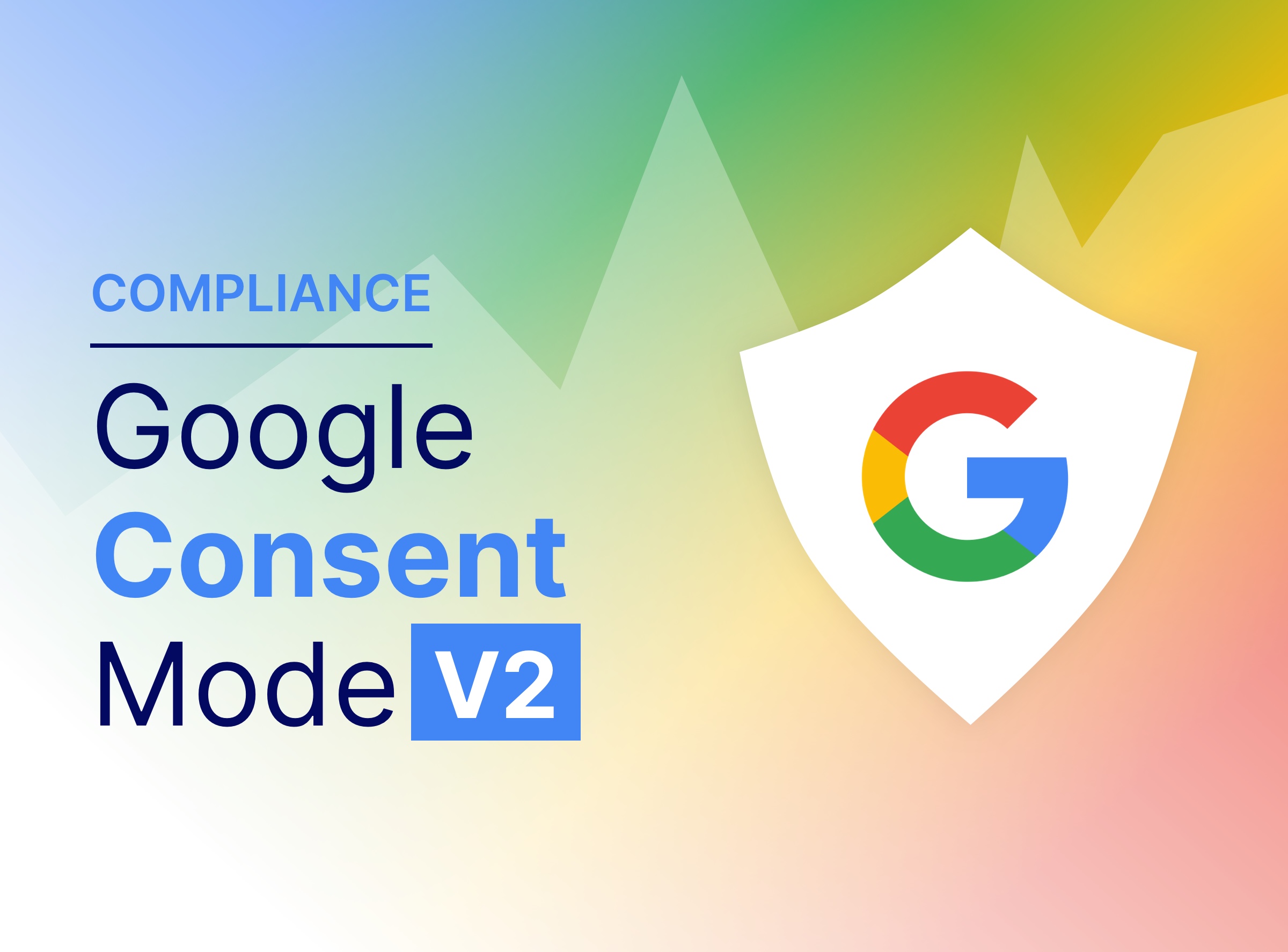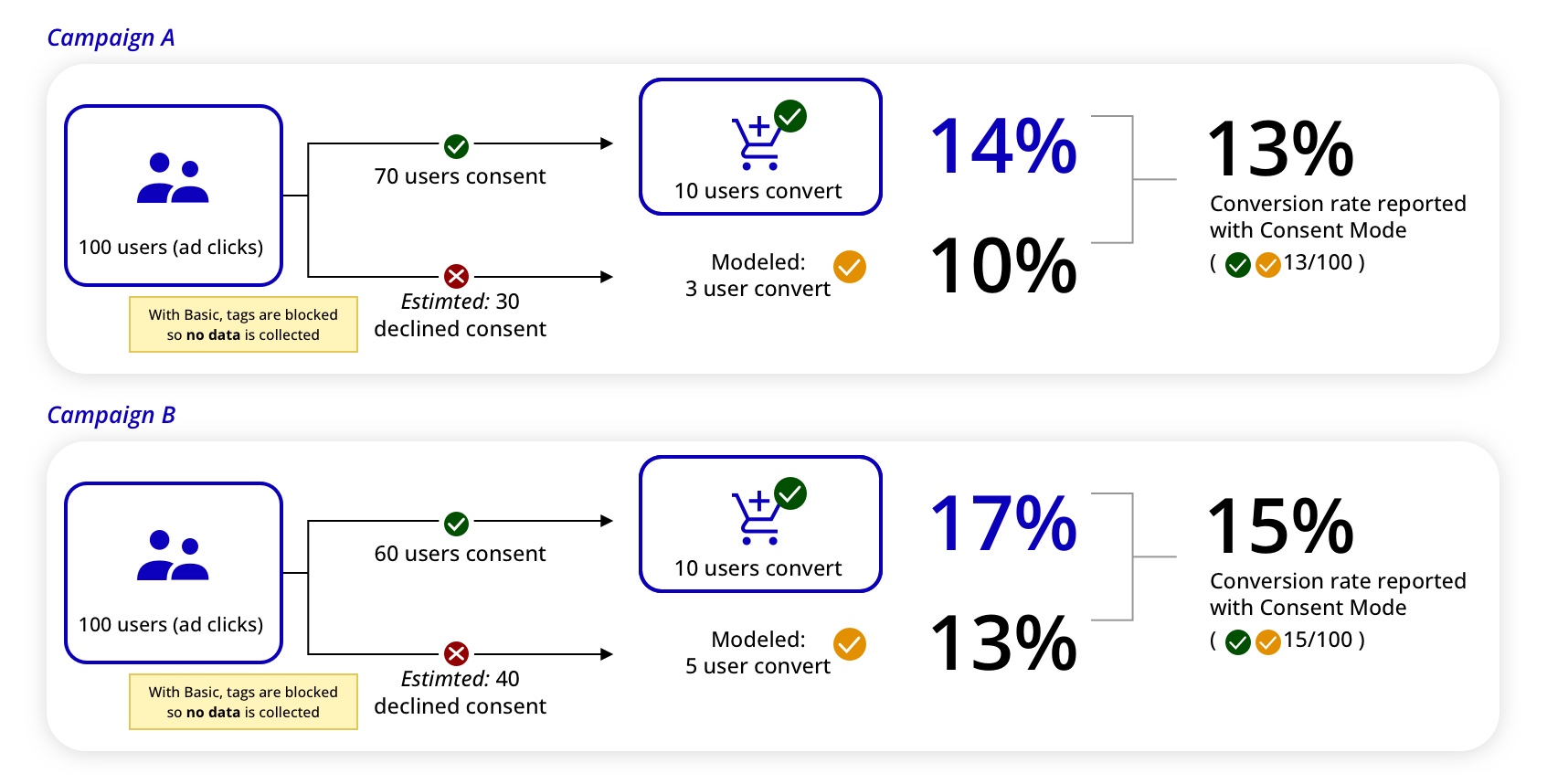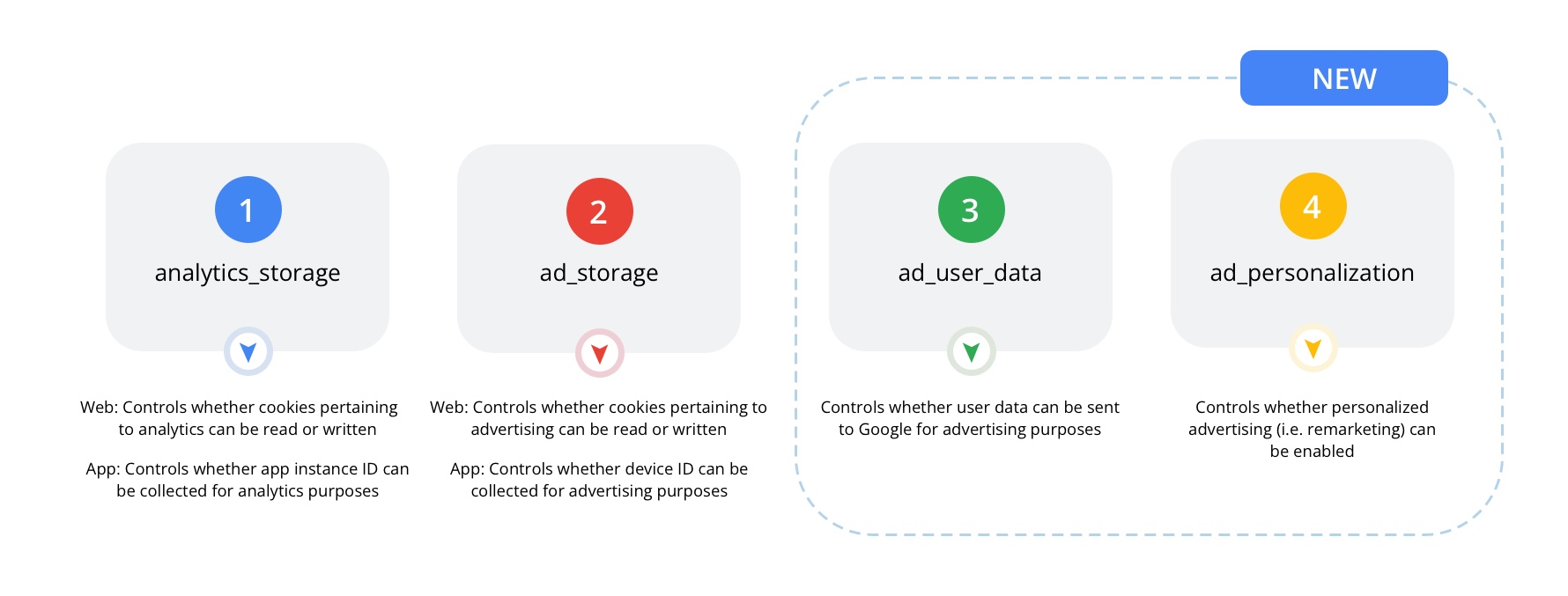
Google Consent Mode V2: updated compliance guide
Protecting users' privacy and browsing data has become increasingly central in recent years. Following the revolution involving Google Analytics in 2022, since March 2024 Google imposed the mandatory use of Consent Mode V2 for websites using its services.
This major change will have a significant impact on the way online platforms handle users' consent for the use of their personal data, especially in the context of online marketing.
But what does this innovation entail and what are its implications for those running advertising campaigns through Google Ads?
Let's find out together.
What is Google Consent Mode V2?
Google Consent Mode V2 is a tool introduced by Google to help website owners efficiently manage users' consent regarding the use of their personal data.
Essentially, it allows them to measure and optimize the performance of their advertisements without compromising user privacy. This is done through a combination of techniques such as data anonymization and user consent management.
What are the main differences?
In the past, implementing Google Consent Mode was optional, and using a Google-certified consent management platform was at the discretion of website owners.
Today, the digital landscape has changed dramatically: the new version of Google Consent Mode, known as Google Consent Mode V2, has become mandatory as of March 2024. It is therefore essential to update privacy policies to absorb the new required consent modes, for several reasons.
Previously, a user's refusal of consent meant that any type of information could not be tracked. However, with the introduction of Google Consent Mode V2, even if a user denies consent, it is still possible to track his or her data and conversions anonymously.
This means that although the information is tracked, it is not directly linked to the user, providing greater privacy protection without compromising analytics and performance optimization.

Finally, another key change concerns the mandatory nature of two parameters that until now were considered optional:
- ad_user_data: controls whether user data can be sent to Google for advertising purposes;
- ad_personalization: controls whether personalized advertising, such as remarketing, can be enabled.
These then become critical to guarantee compliance with privacy regulations and to ensure that the user has full control over their data management and online advertising experiences.

Do you want to maximize the efficacy of your Google Ads campaigns while ensuring compliance with privacy regulations?
Contact us for advice on the proper implementation of Google Consent Mode V2. With this solution, you will not only ensure GDPR compliance and user data protection, but you will also be able to record a higher volume of data and maintain high performance of your ad campaigns.


